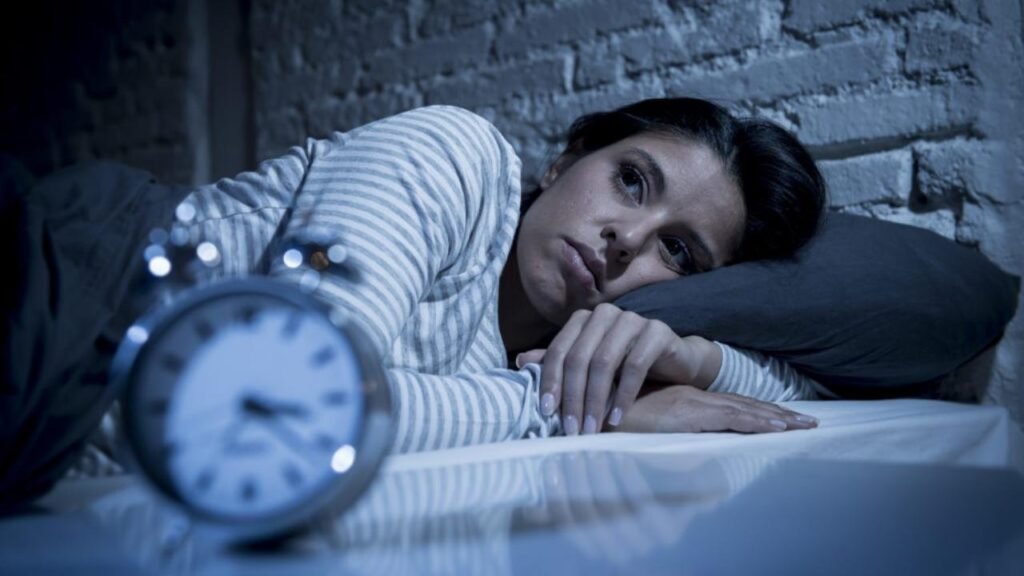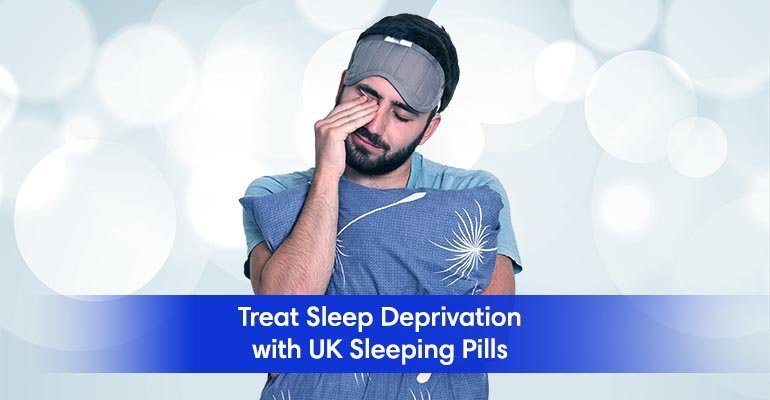In today’s fast-paced world, getting a good night’s sleep can be elusive for many people. Whether it’s due to stress, lifestyle, or underlying health conditions, insomnia and other sleep disorders have become increasingly common. With the growing prevalence of sleep issues, the market is flooded with various sleep aids, making it challenging to choose the right one. Among these options is Zopiclone, a popular prescription sleep aid. But how do you know if Zopiclone is the right choice for you? In this comprehensive guide, we’ll explore everything you need to know about Zopiclone, compare it to other sleep aids, and help you make an informed decision.
Understanding Insomnia and Sleep Disorders
Before delving into the specifics of Zopiclone and other sleep aids, it’s essential to understand what insomnia and sleep disorders entail. Insomnia is the most common sleep disorder, characterized by difficulty falling asleep, staying asleep, or waking up too early and not being able to go back to sleep. Chronic insomnia can significantly impact your quality of life, leading to fatigue, irritability, and difficulty concentrating during the day.
Other sleep disorders include sleep apnea, restless legs syndrome, and narcolepsy, each with its unique set of symptoms and treatment options. While lifestyle changes, such as improving sleep hygiene and reducing stress, can help manage sleep issues, many people turn to sleep aids for relief.
What is Zopiclone?
Zopiclone is a non-benzodiazepine hypnotic medication that is primarily used to treat insomnia. It belongs to a class of drugs known as “Z-drugs,” which also includes zolpidem (Ambien) and eszopiclone (Lunesta). These medications are designed to help people fall asleep more quickly, stay asleep longer, and reduce the number of awakenings during the night.
Zopiclone works by enhancing the activity of a neurotransmitter called gamma-aminobutyric acid (GABA) in the brain. GABA is an inhibitory neurotransmitter, meaning it reduces the activity of nerve cells, promoting relaxation and sleep. By increasing GABA activity, Zopiclone helps to calm the brain and induce sleep.
The Pros and Cons of Zopiclone
Like any medication, Zopiclone has its advantages and disadvantages. Understanding these can help you determine whether it’s the right sleep aid for you.
Pros:
- Effective for Short-Term Insomnia: Zopiclone is highly effective for short-term treatment of insomnia, particularly when other non-pharmacological treatments have failed. It can help you fall asleep faster and improve sleep duration.
- Less Likely to Cause Dependence: Compared to benzodiazepines, Zopiclone is less likely to cause dependence when used as prescribed. However, it’s important to follow your doctor’s recommendations to minimize the risk of dependence.
- Minimal Next-Day Drowsiness: One of the advantages of Zopiclone over some other sleep aids is that it generally causes less next-day drowsiness, allowing you to wake up feeling more refreshed.
- Flexible Dosage: Zopiclone is available in different dosages, allowing for more tailored treatment based on your specific needs.
Cons:
- Potential for Side Effects: Common side effects of Zopiclone include a bitter or metallic taste in the mouth, dry mouth, and dizziness. Some people may also experience headaches, nausea, or gastrointestinal issues.
- Risk of Dependence and Withdrawal: Although the risk is lower than with benzodiazepines, long-term use of Zopiclone can still lead to physical dependence. If you suddenly stop taking the medication, you may experience withdrawal symptoms such as anxiety, irritability, and rebound insomnia.
- Impaired Cognitive and Motor Function: Zopiclone can impair cognitive and motor functions, particularly if taken in higher doses or combined with alcohol or other sedatives. This can increase the risk of accidents, especially if you need to drive or operate machinery.
- Not Suitable for Everyone: Zopiclone may not be suitable for individuals with certain medical conditions, such as severe liver or kidney disease, respiratory problems, or a history of substance abuse. It’s essential to consult with your healthcare provider to determine if Zopiclone is safe for you.
Also Read: Understanding the Risks: Is it OK to take zopiclone every night?
Comparing Zopiclone to Other Sleep Aids
When choosing a sleep aid, it’s important to compare Zopiclone to other available options. Here’s how Zopiclone stacks up against some common alternatives:
1. Zolpidem (Ambien)
Zolpidem, another Z-drug, is similar to Zopiclone in that it works by enhancing GABA activity. However, there are some key differences:
- Duration of Action: Zolpidem has a shorter half-life than Zopiclone, which means it may be better suited for individuals who have trouble falling asleep but don’t have difficulty staying asleep.
- Formulations: Zolpidem is available in both immediate-release and extended-release formulations, providing more flexibility depending on your sleep issues.
- Side Effects: Zolpidem is more likely to cause sleepwalking, sleep-driving, and other complex behaviors during sleep, which can be dangerous.
2. Eszopiclone (Lunesta)
Eszopiclone is another Z-drug that is often compared to Zopiclone:
- Duration of Action: Eszopiclone has a longer half-life than Zopiclone, making it more suitable for people who have difficulty staying asleep throughout the night.
- Side Effects: Like Zopiclone, Eszopiclone can cause a metallic taste in the mouth, but it may be more pronounced. It also carries a similar risk of dependence and withdrawal symptoms.
- Effectiveness: Both medications are effective for treating insomnia, but Eszopiclone may be more effective for long-term use due to its longer duration of action.
3. Benzodiazepines (e.g., Temazepam, Diazepam)
Benzodiazepines were once the go-to medications for treating insomnia but have largely been replaced by Z-drugs like Zopiclone due to their higher risk of dependence and side effects:
- Dependence and Withdrawal: Benzodiazepines are more likely to cause physical dependence, and withdrawal symptoms can be severe if the medication is abruptly discontinued.
- Next-Day Drowsiness: Benzodiazepines are more likely to cause next-day drowsiness and impaired cognitive function, making them less suitable for individuals who need to be alert during the day.
- Use for Anxiety: Benzodiazepines are also used to treat anxiety disorders, so they may be a better option for individuals who have both insomnia and anxiety.
4. Over-the-Counter (OTC) Sleep Aids
OTC sleep aids, such as diphenhydramine (Benadryl) and doxylamine (Unisom), are widely available and often used as first-line treatments for insomnia:
- Availability: These medications are available without a prescription, making them more accessible than prescription sleep aids like Zopiclone.
- Effectiveness: OTC sleep aids are generally less effective than prescription options and may cause more next-day drowsiness.
- Side Effects: Common side effects of OTC sleep aids include dry mouth, constipation, and urinary retention. They are also more likely to cause morning grogginess compared to Zopiclone.
5. Melatonin Supplements
Melatonin is a hormone that regulates the sleep-wake cycle. Melatonin supplements are a popular natural remedy for insomnia:
- Safety: Melatonin is generally considered safe and is less likely to cause dependence or withdrawal compared to prescription sleep aids.
- Effectiveness: Melatonin is most effective for treating sleep disorders related to circadian rhythm disruptions, such as jet lag or shift work. It may be less effective for general insomnia.
- Side Effects: Side effects of melatonin are usually mild and may include dizziness, headaches, and daytime sleepiness.
Also Read: Does Zopiclone Give You a Good Night’s Sleep?
Factors to Consider When Choosing a Sleep Aid
When deciding whether Zopiclone or another sleep aid is right for you, consider the following factors:
1. Nature of Your Sleep Problem
The specific nature of your sleep problem will play a significant role in determining the most appropriate sleep aid. For example:
- Difficulty Falling Asleep: If your primary issue is falling asleep, a fast-acting medication like Zopiclone or Zolpidem may be suitable.
- Difficulty Staying Asleep: If you tend to wake up frequently during the night, a longer-acting medication like Eszopiclone might be a better choice.
- Sleep Maintenance and Anxiety: If anxiety is contributing to your insomnia, a benzodiazepine might be more effective, though it comes with higher risks.
2. Duration of Treatment
Consider how long you anticipate needing a sleep aid:
- Short-Term Use: Zopiclone is effective for short-term treatment and is less likely to cause dependence with brief use.
- Long-Term Use: For long-term use, it’s important to discuss with your healthcare provider whether a Z-drug, benzodiazepine, or alternative treatment is most appropriate.
3. Side Effect Profile
Different sleep aids have different side effect profiles, which may influence your decision:
- Daytime Drowsiness: If you need to be alert during the day, choose a sleep aid that is less likely to cause next-day drowsiness, such as Zopiclone.
- Complex Sleep Behaviors: If you’re concerned about sleepwalking or other complex sleep behaviors, you may want to avoid Zolpidem.
- Taste Alterations: If you’re sensitive to changes in taste, be aware that Zopiclone and Eszopiclone can cause a metallic taste in the mouth.
4. Potential for Dependence
The potential for physical and psychological dependence is an important consideration:
- Lower Risk: Zopiclone has a lower risk of dependence compared to benzodiazepines, but it’s still important to use it as prescribed and avoid long-term use without medical supervision.
- Non-Pharmacological Alternatives: If you’re concerned about dependence, consider non-pharmacological treatments like cognitive-behavioral therapy for insomnia (CBT-I) as a first-line treatment.
5. Underlying Health Conditions
Your overall health and any underlying medical conditions can impact your choice of sleep aid:
- Liver or Kidney Disease: Zopiclone may not be suitable for individuals with severe liver or kidney disease, as these organs are responsible for metabolizing the drug.
- Respiratory Issues: If you have sleep apnea or other respiratory conditions, certain sleep aids may exacerbate these problems.
6. Consulting with Your Healthcare Provider
Ultimately, the decision to use Zopiclone or another sleep aid should be made in consultation with your healthcare provider. They can help you weigh the benefits and risks, consider any potential drug interactions, and determine the most appropriate treatment for your specific needs.
Also Read: How Many Hours Does Zopiclone Keep You Asleep?
Non-Pharmacological Alternatives to Sleep Aids
While medications like Zopiclone can be effective for treating insomnia, they are not the only option. Non-pharmacological treatments, such as cognitive-behavioral therapy for insomnia (CBT-I), have been shown to be highly effective for improving sleep without the risks associated with medication.
CBT-I involves identifying and changing thoughts and behaviors that contribute to sleep problems. It may include techniques such as sleep restriction, stimulus control, and relaxation training. CBT-I is considered the first-line treatment for chronic insomnia and can be used alone or in combination with medication.
Other non-pharmacological approaches to improving sleep include:
- Sleep Hygiene: Improving your sleep environment and habits, such as maintaining a regular sleep schedule, reducing caffeine and alcohol intake, and creating a comfortable sleep space.
- Relaxation Techniques: Practices such as mindfulness meditation, deep breathing exercises, and progressive muscle relaxation can help reduce stress and promote relaxation before bed.
- Exercise: Regular physical activity can improve sleep quality, but it’s important to avoid vigorous exercise close to bedtime.
Conclusion: Is Zopiclone Right for You?
Choosing the right sleep aid involves considering various factors, including the nature of your sleep problem, the duration of treatment, potential side effects, and your overall health. Zopiclone UK is a highly effective medication for short-term treatment of insomnia, particularly for individuals who have difficulty falling asleep or staying asleep. It offers several advantages, such as a lower risk of dependence compared to benzodiazepines and minimal next-day drowsiness.
However, Zopiclone is not suitable for everyone, and it’s essential to use it under the guidance of a healthcare provider. If you’re considering Zopiclone, discuss your sleep issues with your doctor to determine whether it’s the right choice for you. Additionally, explore non-pharmacological treatments like CBT-I, which can provide long-term benefits without the risks associated with medication.
Ultimately, the goal is to find a treatment that improves your sleep and enhances your overall well-being. Whether you choose Zopiclone, another sleep aid, or a non-pharmacological approach, prioritizing your sleep health is a crucial step toward a healthier, more fulfilling life.





